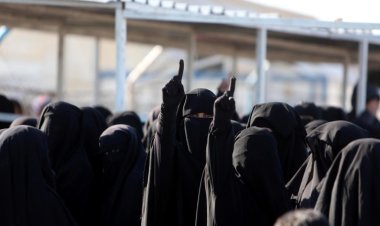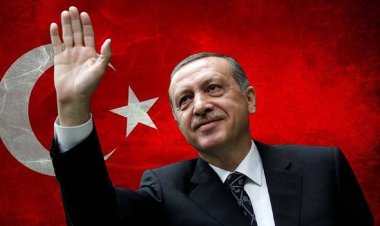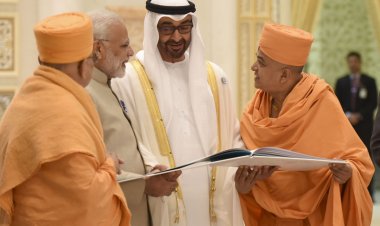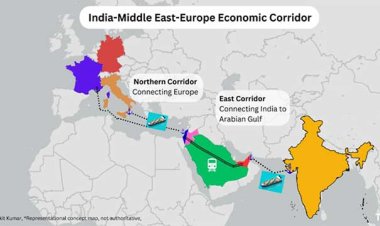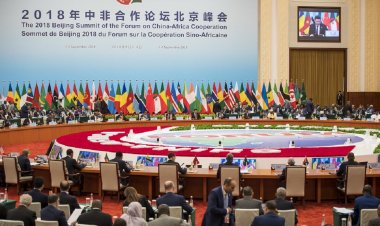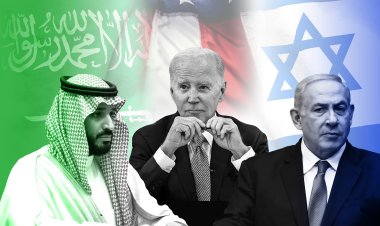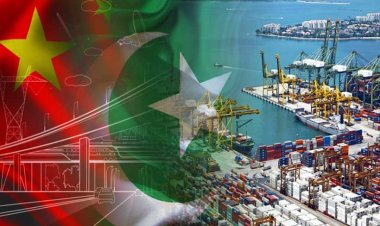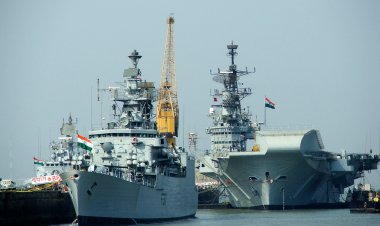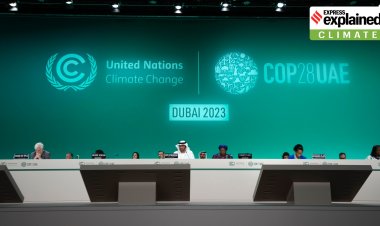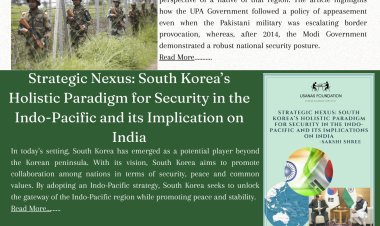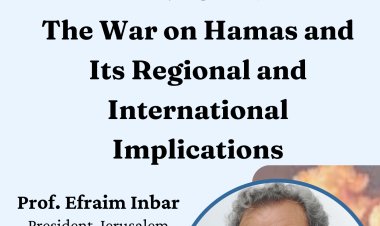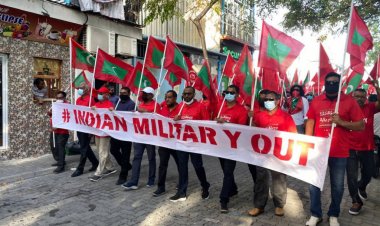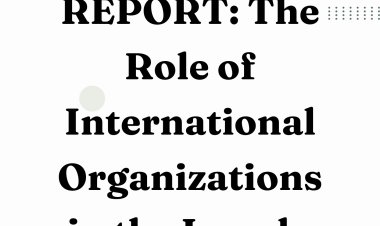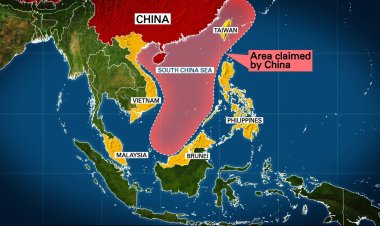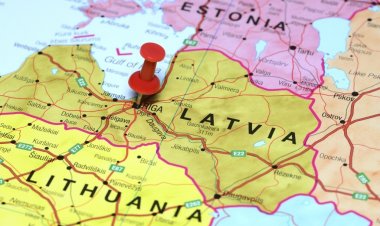Israel's fight against Hamas continues
Since the 10th of May 2021, violence has erupted between Israel and Palestine, which many commentators are calling one of the heaviest conflicts since 2014. After the recent ceasefire agreement from both sides, researchers and reporters are looking at the cause behind the rekindling of this decades-old conflict. This article aims to examine how and why has this conflict suddenly escalated.
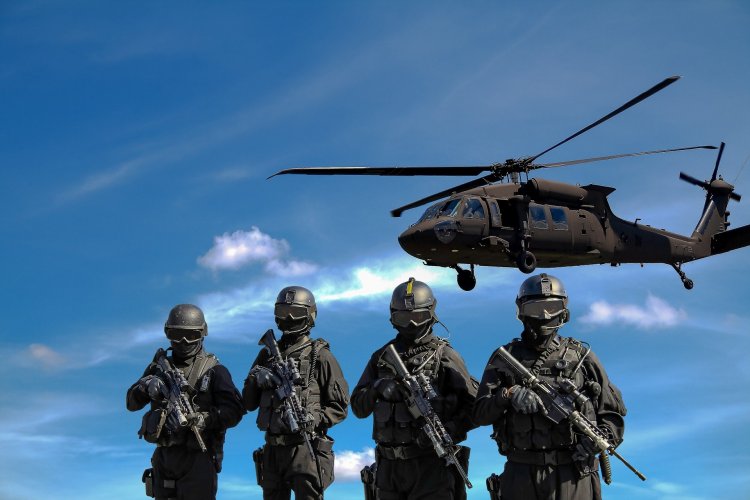
Analysis
By Dr Anoop Kumar Gupta
Once again, Israel faces a series of multifaceted acute crises at political, social, and security levels, some of which seem perennial and chronic. In contrast, others look a bit new. While many countries, including India, are still dealing with the devastating impact of the Coronavirus pandemic, Israel emerged victorious through a systematic, successful and well-articulated war against the Covid-19 pandemic. It declared the country free from the Coronavirus in April 2021. But even after defeating the virus, Israel is facing an existential threat from non-state entities. This time, Israel is not simply dealing with violent demonstrations of Palestinian people in East Jerusalem but a severe military conflict with militant Palestinian Islamist group Hamas in Gaza. The current crisis shows how localized violence in East Jerusalem turned into a 'mini war' between Israel and Hamas, resulting in social unrest and violence between Jews and Arabs in Israel's demographically mixed cities.
The current crisis between Israel and Palestine stems from century-old unresolved issues between Israelis and Palestinians. The area between River Jordan in the East to the Mediterranean Sea in the West was part of the Ottoman Empire, which was transferred to the British after the Ottoman defeat in the First World War. United Nations partition plan of November 1947 suggested division of the mandated land as Israel for Jews and Palestine for Palestinians. The state of Israel declared its independence on May 14 1948. Since then, Israel fought several wars with Arab states to preserve its sovereignty. Though the gravity of the Arab-Israel conflict as inter-state conflict has subsided through diplomatic negotiations, non-state militant actors such as Hezbollah, Hamas, and Islamic Jihad have taken a lead role in the Israeli-Palestinian conflict with the alleged tacit support of countries like Iran and Turkey
So, what led to the most recent Israel-Palestine escalation? From the beginning of Ramadan in mid-April, Palestinians repeatedly clashed with Israeli police who put up barriers to stop evening gatherings at the walled Old City's Damascus Gate after iftar, breaking the daytime fast. Fighting in Jerusalem erupted after weeks of simmering tensions between Israeli police and Palestinian protesters in the holy site of Old City that is religiously important to both Jews and Muslims. The hilltop area of the old city is sacrosanct to both Jews and Muslims. Muslims call it Haram al-Sharif or Noble Sanctuary, and for Jews, it is known as the holy Temple Mount.
At the core of this current escalation is the decade-old unresolved issue of the status of Jerusalem between Israel and Palestinians. Israel annexed East Jerusalem in 1980 after capturing it from Jordan in the 1967 war and consider Jerusalem as its eternal capital while Palestinians claim East Jerusalem as their future capital of their would-be Palestinian state. The Palestinian fear of eviction by a Jewish settler in Sheikh Jarrah district in East Jerusalem has added flare to Palestinian violence. Issue of Jewish settlement in Sheikh Jarrah is under trial in an Israeli court. The annual celebration by Israelis known as Jerusalem Day further aggravated the issue. Israelis observe Jerusalem Day in memory of its victory in the Six-Day War of 1967, in which Israel captured East Jerusalem from Jordan.
Current clashes between Israeli police and Palestinians in East Jerusalem provided an opportunity for Hamas to intervene in the matter that escalated into a military conflict between Hamas and Israel. Hamas has been labelled as a radical Islamist organization by several Western media outlets, but Israel considers Hamas a terrorist outfit. Hamas has controlled the Gaza Strip since 2007, repeatedly attacking Israel. It has several foreign allies. Hamas rejected the Oslo peace accords and continued its terror attacks against Israel. Hamas-Israel fighting became a perennial issue that has been erupting cyclically for a long. In the current confrontation, Hamas issued an ultimatum to Israel to withdraw its police force from the area of Old City and Sheikh Jarrah. Israel did not pay any attention to Hamas warnings. Hamas and Islamic Jihad militants fired hundreds of rockets deep into southern Israeli territory and Jerusalem and Tel Aviv. More than 1000 fire of rockets barrage has been targeted towards central and southern Israel from Gaza area.
Interestingly, even after the joint blockade and monitoring of the Gaza Strip by Israel and Egypt, Hamas has successfully increased its firing power capability through a barrage of rockets and drone. Israeli army retaliated and carried out heavy airstrikes in Gaza to weaken terrorist infrastructure there. The international community has requested both parties to stop escalation and military conflict immediately. There is an internal political dynamics of competition between Hamas and Fatah in Palestinian politics to win over Palestinian support. Hamas is holding power in Gaza, and Fatah is ruling West Bank. Hamas is desperate to show itself as a protector of all Palestinian people to weaken the grip of its rival political Fatah on the Palestinian people, including those living in Israel.
Israeli-Palestinian violence in Jerusalem and Gaza-Israel escalation has stretched across Israel. These hostilities have opened a new front of confrontation in Israel by fuelling confontration between Israeli Jews and Israeli Arabs who live together in some diverse cities. The spread of this violence in other areas of Israel poses a severe threat to the Israeli social fabric. The majority of Jewish people have been living side-by-side with minority Arab, Christian, Druz in Israel. Palestinians who live in Israel and have Israeli citizenship are called Israeli Arabs. Israeli Arabs constitute around 21 per cent of the Israeli population. Though Israel had faced such Arab-Jewish clashes in diverse cities during the second Intifada in 2000, the situation seems alarming now. Israeli Arabs have displayed their anguish over violence against Palestinians in East Jerusalem and airstrikes against Hamas in Gaza.
The eruption of Arab-Jewish riots in Lod city near Tel Aviv is severe in Israel's denting social fabric. Protest demonstrations by Israeli Arab in the city of Lod turned into full-scale rioting. Looking at the seriousness and gravity of the riot, Prime Minister Benjamin Netanyahu has declared a state of emergency in Lod. Israeli border police had to be called in from the West Bank area. This is the first time that the Israeli government has declared an emergency over an Arab community since 1966. Expressing the seriousness of the situation Mayor of Lod city Yair Revivo has reportedly said all of Israel should know this is a complete loss of control and 'civil war' was breaking out and 'Intifada' (uprising) erupted in Lod. Reflecting the anarchic situation in Lod, the Guardian quoted Israel's Channel 12 as saying, "Gangs of Arab youth are going street to street, burning stores smashing windows…Jewish families are huddled at home, terrified at going out…Police are nowhere to be seen." The Guardian also reported, "Channel 12 also showed footage of Jewish residents of Lod hurling rocks at cars of Arab residents."
Unrest in other Israeli cities and towns with large Israeli Arab populations has also been reported where rival Jewish and Arab mobs attacked people, cars, shops, offices, hotels, and restaurants. Eruption of violence was reported in Batyam near Tel Aviv, Ramle near Lod, the northern city of Acre, and Jaffa's historic port. The spread of violence beyond East Jerusalem to Israeli cities with Jewish and Arab residents is unprecedented and witnesses the opening of another new front in the century-old conflict. Kobi Shabtai, the national police commissioner, was quoted saying that "we see a situation in the mixed cities that we have never seen before." Israeli President called it 'senseless civil war among ourselves' and urged to end 'this madness.'
There is a regional dimension to the current crisis and conflict in Israel as well. Israel has successfully consolidated ties with Gulf nations by establishing diplomatic relations with UAE and Bahrain. It has successfully developed a positive rapprochement with Saudi Arabia also. Diplomatic engagement with the Gulf States was a joyous moment for Israel as it gives Israel legitimacy in the Islamic world. But Iran is again threatening Israel. Israel faces a security threat from its northern frontier war-torn Syria and from the southern front of the Gaza Strip. There have been various airborne attacks in Israel from Syrian territories. Israel's northern areas have been under series of attacks from Syrian militias.
Israel is already facing a crisis of political stability because of a fractured mandate, which leads to the government's fall, resulting in a series of general elections. Israel has faced four general elections since 2019 and unable to form a stable government.
Though the immediate cause of the current conflict lies in Jerusalem violence during Ramadan days, the root cause of the conflict is located in non-resolution of the extended due Palestinian demand and aspiration for an independent and sovereign Palestinian state in West Bank and Gaza. Israel wants assurance of its security from Palestinian leadership for a peaceful resolution because it concerns national security and survival. In this situation, a common consensus on establishing an independent sovereign state for Palestinian people and the security issue of Israel seems a distant dream. Nonetheless, Israeli and Palestinian leadership have to think over the cascading effects of this conflict for the security and prosperity of their people.
Dr Anoop Kumar Gupta is a visiting researcher at the Hebrew University of Jerusalem, Israel and an alumnus of the School of International Studies, JNU New Delhi.
Disclaimer: This paper is the author’s individual scholastic contribution and does not necessarily reflect the organisation’s viewpoint.

